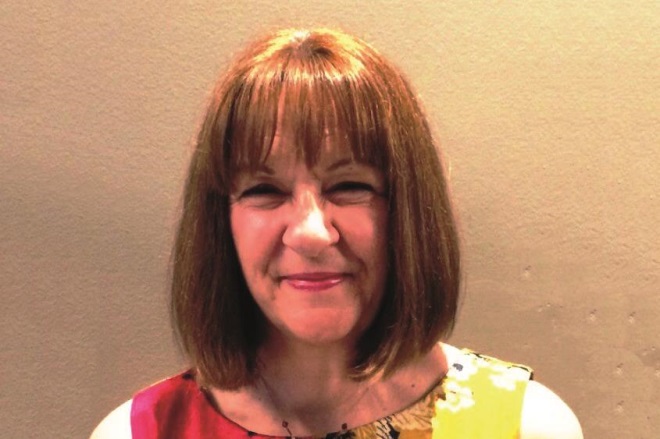
Shutterstock.com
Over the last few weeks, I have had the pleasure of participating in events focusing on women in pharmacy leadership roles and gender inequality. This, along with the NHS’ 70th birthday celebrations, has made me reflect on my pharmacy technician career journey — specifically about its longevity, the twists and turns along the way, and the ‘bumps, hill starts and road closures’ I’ve experienced.
I am naturally an optimist and have always thought that I have just been lucky, but deeper reflection, which, in itself has been really empowering, has shown me that I have succeeded because of my determination and reluctance to accept ‘no’ as an answer and by asking ‘why not?’ I have had, and still have, self-doubts that I have come to know as ‘imposter syndrome’. However, I also now know, by talking openly to female colleagues, that I am not alone and that this is common among women. This has helped my self-belief and strengthened my ‘go get it’ attitude.
Starting in community
I decided to pursue a career as a pharmacy technician after leaving school and looking at a number of career leaflets for ‘girls’ with a passion for science. This was back in the late 1960s when career choices were still very traditional and gender biased. This reminds me of how, at secondary school, I had to coerce the headmistress into ‘allowing’ chemistry to be taught as a standalone subject, instead of incorporating the three main sciences together into one subject called ‘Science for Living’. I knew I wanted, along with a few other peers, a more in-depth knowledge of chemistry. Fortunately, we had a forward-thinking female teacher as our champion, who taught us in an extra class.
My career started after completing work experience in a local community pharmacy, I decided to write to all the local hospitals and Boots to ask if they had any training positions available. At the time, I thought myself very lucky that one letter led to a new and first ever student pharmacy technician training post being created at a local district general hospital, and I duly started my training there 48 years ago this year. I will be eternally grateful to my first chief pharmacist for giving me the opportunity that has led to where I am now. Although I have mainly practised in secondary care, I have also worked in community pharmacy, primary care and academia, teaching on the pharmacy technician course.
Facing adversity
There have been hurdles and unjust episodes over time but these have spurred me on with even greater determination — I cannot abide by injustice, wherever it resides. Recently, an esteemed colleague described me as being dogged and I am just this when it comes to injustice and inequality, not only for women but for everyone, especially for pharmacy technicians.
A number of years ago, a situation that presented me with a huge hurdle was inequality over my NHS ‘Agenda for Change’ pay band. My role as pharmacy technician education lead was graded two bands lower than an identical post for a pharmacist within the same specialism, and with the same responsibilities and accountability. The banding was allocated because I was a pharmacy technician responsible for pharmacy technicians and support staff; I had to prove that I had the same experience as my pharmacist counterpart. Through sheer tenacity and mutliple appeals, I managed to have the banding raised by one grade, but sadly not to equal status.
I have found that bias does not always come from avenues you may expect. In my experience, this was particularly true when I returned to hospital pharmacy after working in community while my children were young. It was a challenge to regain professional respect simply because I had switched to a different sector. The other challenge I faced, although not from senior management, was peer pressure related to child care and part-time working. This was a surprise to me considering the pharmacy profession is predominately female.
I have had many opportunities too and many advocates who have recognised and nurtured my potential. On my request, I was supported to undertake management and leadership courses that led to teaching qualifications, including a degree in vocational education and qualified teacher status.
Representing pharmacy technicians
A tremendous piece of advice that an inspirational manager gave me a number of years ago was ‘to grow a thick skin’. When frustrations come my way now, I remember this along with always upholding my personal and professional values. This helps me stay true to my work as a pharmacy technician and in my role as the president of Association of Pharmacy Technicians UK (APTUK).
APTUK is a remarkable organisation, run purely by pharmacy technician volunteers who give their time, capacity, capabilities and dedication freely on top of their day jobs. It happens that our current directors on the board are all women and we are proud of this, but we stress that we uphold our values that include equality of opportunity for all.
I know that I am not alone in my advocacy for pharmacy technicians, and I celebrate the tremendous efforts of all my peers. My advice to our profession is to strive to be the best for the benefit of patients, grow that thick skin and don’t give up even when challenges feel overpowering. As pharmacy technicians, we have so much to offer as professionals in our own right.

Tess Fenn BA Hons MAPharmT, president, Association of Pharmacy Technicians UK
Tess has worked in hospital, academia, community and primary care sectors during her career as a pharmacy technician. She has led on pharmacy technician and support staff development, CPD and quality assurance of vocational qualifications. Tess has been an active member of the Association of Pharmacy Technicians UK, holding the posts of education officer and vice president, and is now the president of the organisation. Tess is also secretary for the European Association of Pharmacy Technicians.


